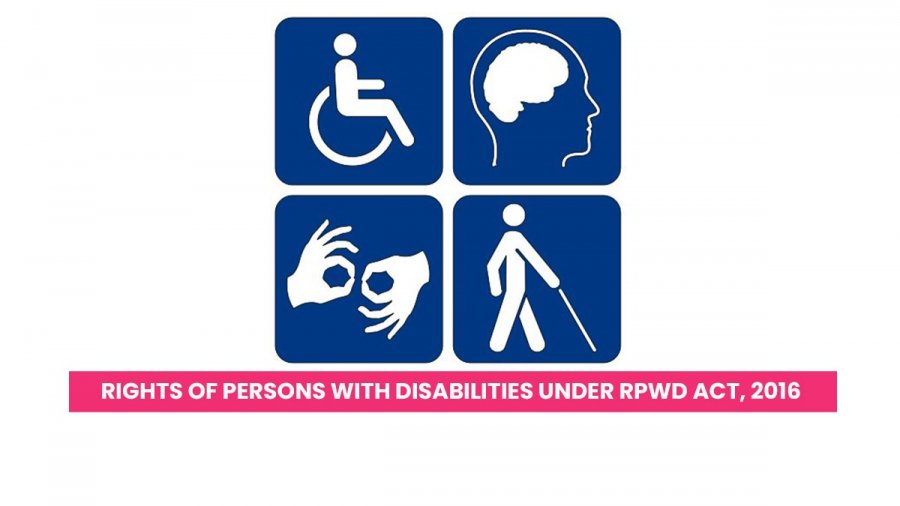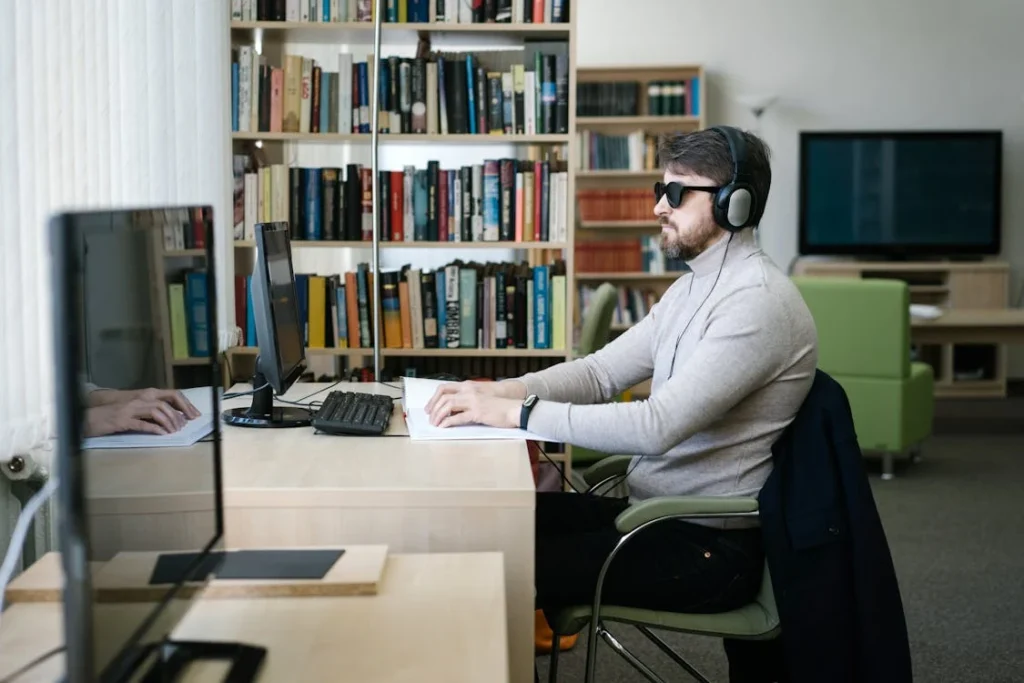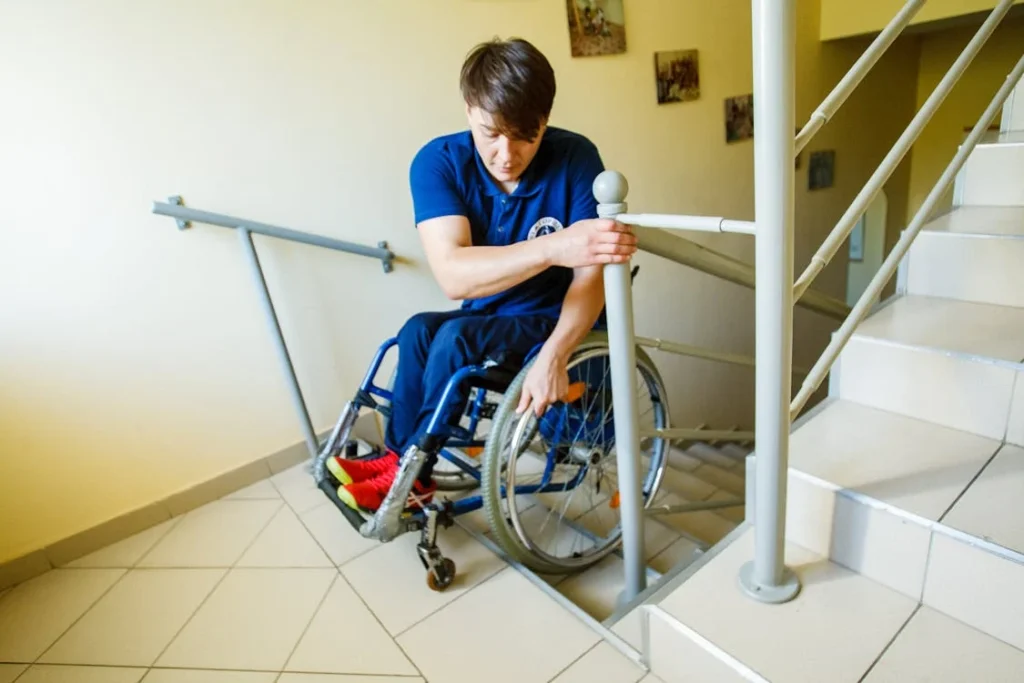Living with a disability should not mean living with fewer rights. In 2016, India took a significant step toward inclusion and equality with the Rights of Persons with Disabilities (RPWD) Act. This law replaced the earlier Persons with Disabilities (PwD) Act of 1995, expanding protections, introducing new rights, and strengthening legal frameworks to ensure that individuals with disabilities have the same opportunities as everyone else.
The RPWD Act, 2016, is not just a legal document—it is a commitment to making India more inclusive. It covers essential aspects like education, employment, healthcare, accessibility, and social security. Whether you are a person with a disability, a caregiver, an employer, or someone advocating for inclusivity, understanding this law can help you navigate rights, opportunities, and responsibilities more effectively.

Expanded Definition of Disability
One of the biggest improvements in the RPWD Act, 2016, is its expanded definition of disability. The previous law recognized only seven disabilities, which left out many individuals who needed legal protection.
The new Act has increased this number to 21 disabilities, covering a wider range of physical, intellectual, sensory, and neurological conditions.
The Act now includes conditions such as autism spectrum disorder, cerebral palsy, muscular dystrophy, and multiple sclerosis, among others.
This broader recognition ensures that more people receive the legal protections and benefits they need. Additionally, the government has the power to add more conditions to this list as medical understanding evolves.
By expanding the definition, the law acknowledges that disabilities exist in many forms and that each person’s experience is unique. This is a crucial step in ensuring that all individuals with disabilities have equal rights and access to support systems.
Right to Equality and Non-Discrimination
The RPWD Act, 2016, clearly states that no person with a disability should face discrimination. This applies to all aspects of life, including education, employment, healthcare, and public services.
The law ensures that individuals with disabilities are treated fairly and are not denied opportunities due to their condition.
If a person with a disability is denied admission to a school, rejected from a job, or refused access to a public place, they have the legal right to challenge this unfair treatment.
Employers, educators, and service providers must make reasonable accommodations to ensure inclusivity. For example, workplaces must provide necessary tools and facilities to help employees with disabilities perform their jobs effectively.
The law also prohibits harassment and abuse against individuals with disabilities. If someone faces mistreatment, they can seek legal action to protect their rights.
The goal of this provision is to create a society where persons with disabilities can live with dignity, without fear of exclusion or unfair treatment.
Education and Skill Development
Education is a fundamental right, and the RPWD Act strengthens protections for children and young adults with disabilities. Schools, colleges, and universities cannot deny admission to a student based on their disability.
Educational institutions must provide inclusive learning environments, including special educators, assistive technology, and modified teaching methods when necessary.
To further support learning, the government offers scholarships, financial aid, and skill development programs.
Special education centers and vocational training institutes also play a role in equipping individuals with disabilities with the knowledge and skills they need to build successful careers.
Inclusive education benefits not just persons with disabilities but society as a whole. When schools and universities embrace diversity, they create a culture of acceptance and mutual respect.
Employment Opportunities and Workplace Rights
Securing a job can be a major challenge for individuals with disabilities, but the RPWD Act takes steps to improve employment prospects.
Government organizations and public sector companies must reserve 4% of jobs for persons with disabilities. This includes opportunities in various roles, ensuring that individuals with disabilities have equal access to employment.
Private companies are encouraged to adopt inclusive hiring practices and create workplaces that are accessible and accommodating.
Employers must provide necessary adjustments, such as flexible work hours, assistive devices, and modified workspaces, to help employees with disabilities succeed.
If an individual faces discrimination at work due to their disability, they have the right to seek legal action. Companies that fail to comply with the law may face penalties.
By promoting equal employment opportunities, the RPWD Act ensures that persons with disabilities can contribute to the workforce, achieve financial independence, and pursue fulfilling careers.

Accessibility and the Right to an Inclusive Environment
For a society to be truly inclusive, persons with disabilities must be able to navigate public and private spaces without barriers. The RPWD Act, 2016, makes accessibility a legal right, ensuring that individuals with disabilities can live independently and participate fully in society.
Accessibility is not just about physical spaces—it extends to transportation, digital platforms, and even communication.
Making Public Spaces Inclusive
One of the most significant provisions of the RPWD Act is the requirement that all public buildings, offices, hospitals, schools, and recreational spaces must be accessible to persons with disabilities.
This means that government and private establishments must provide ramps, elevators, accessible washrooms, and signage in braille where needed.
Buildings that are newly constructed must follow accessibility guidelines, and existing structures must be modified to ensure compliance.
Despite these regulations, accessibility remains a challenge in many parts of India. While some cities have taken steps to make public spaces disability-friendly, many government offices, courts, and educational institutions still lack basic infrastructure like ramps and elevators.
For individuals using wheelchairs, crutches, or prosthetic limbs, navigating such environments can be difficult and frustrating. The law requires authorities to address these issues, and individuals can file complaints if accessibility is denied.
Accessible Transport and Mobility Rights
Public transportation is another area where accessibility is essential. The RPWD Act mandates that buses, trains, metro systems, and airports must be designed in a way that allows persons with disabilities to travel comfortably and safely.
This includes the provision of low-floor buses, reserved seating, audio announcements, and visual aids for those with visual or hearing impairments.
Airports and railway stations are required to offer assistance services, including wheelchair support and priority boarding. However, implementation varies, and many transportation systems in India still fall short of these standards.
Some railway stations lack ramps or accessible restrooms, and buses in many cities remain difficult for wheelchair users to board.
Complaints about inaccessible transport services can be addressed to the concerned authorities. If necessary, legal action can be taken to ensure that transport providers meet the required accessibility standards.
Digital Accessibility and the Right to Information
In today’s digital world, access to information is as important as access to physical spaces. The RPWD Act recognizes this and ensures that websites, mobile applications, and government portals must be designed in a way that allows persons with disabilities to use them without difficulty.
For individuals with visual impairments, screen reader-friendly websites are essential. Those with hearing impairments require captioning and sign language support for digital content.
The law mandates that public services, banking systems, and educational platforms follow accessibility guidelines, ensuring that persons with disabilities do not face barriers when using online resources.
Despite these legal requirements, many government and corporate websites in India still do not meet accessibility standards.
This creates difficulties for persons with disabilities when trying to apply for benefits, access healthcare services, or complete everyday tasks such as banking and bill payments. Organizations that fail to comply with digital accessibility norms can be held accountable under the law.
Enforcement and Accountability
While the RPWD Act, 2016, lays out strong accessibility provisions, implementation is often inconsistent. Many public and private entities do not comply with the law, and enforcement agencies struggle to ensure compliance across all sectors.
To address this, the Act requires the appointment of Accessibility Commissioners at the central and state levels. These officials are responsible for monitoring accessibility standards and ensuring that complaints related to accessibility barriers are addressed.
If a government office, business, or institution does not provide accessible facilities, individuals have the right to report the issue and seek corrective action.
A major challenge remains the lack of awareness and urgency in implementing accessibility laws. Many organizations treat accessibility as an afterthought rather than a fundamental requirement. Public pressure, advocacy, and legal interventions are often necessary to push for real change.

Social Security, Healthcare, and Financial Support
The RPWD Act, 2016, recognizes that persons with disabilities often face additional financial and healthcare challenges.
To address these needs, the law mandates provisions for social security, medical care, and financial support, ensuring that individuals with disabilities and their families receive the necessary assistance to live with dignity.
While these provisions exist, access to them remains a challenge due to bureaucratic hurdles and lack of awareness. Understanding these rights is essential to ensure that persons with disabilities receive the benefits they are entitled to.
Healthcare Rights and Accessible Medical Services
Healthcare is a fundamental right, and the RPWD Act makes it clear that persons with disabilities should have equal access to medical services without discrimination.
Hospitals, clinics, and healthcare facilities are required to provide accessible infrastructure, including wheelchair-friendly entrances, sign language interpreters, and assistive devices for those with visual or hearing impairments.
Persons with disabilities also have the right to receive free healthcare in government hospitals, particularly for conditions related to their disability.
This includes diagnostic tests, treatment, rehabilitation programs, and necessary medical equipment such as prosthetics, mobility aids, and assistive devices.
The government has launched several initiatives to provide affordable healthcare, but access remains inconsistent, especially in rural areas where medical infrastructure is limited.
Another critical aspect of the Act is the need for insurance companies to offer health coverage for persons with disabilities. Previously, many individuals with disabilities faced difficulty obtaining medical insurance, as companies either denied coverage or charged high premiums.
The law now prohibits discrimination in the insurance sector, ensuring that persons with disabilities can access health coverage on an equal basis with others.
Social Security and Pension Benefits
Many individuals with disabilities, particularly those from economically weaker backgrounds, require financial assistance to support their daily lives. The government offers disability pensions to eligible individuals through various central and state-level schemes.
The Indira Gandhi National Disability Pension Scheme (IGNDPS) provides financial support to persons with disabilities who are unable to earn a livelihood. Additionally, many state governments have their own pension programs that offer monthly financial aid.
To avail of these benefits, individuals must obtain a disability certificate, which serves as official proof of disability. While this document is essential for accessing social security schemes, obtaining it can be a complicated and time-consuming process.
Many applicants face bureaucratic delays, multiple medical evaluations, and long waiting periods, making it difficult to claim their entitlements.
The government has introduced the Unique Disability Identity (UDID) Card, which aims to streamline the process and ensure that individuals with disabilities can easily access their benefits across different states.
This card serves as a single document for availing healthcare, pension, travel concessions, and other government services.
Financial Assistance and Self-Employment Opportunities
For persons with disabilities who wish to pursue self-employment or entrepreneurship, financial aid is available through government-backed loans and grants.
The National Handicapped Finance and Development Corporation (NHFDC) provides low-interest loans to individuals with disabilities to start businesses, pursue vocational training, or acquire assistive devices.
These initiatives encourage financial independence and enable individuals to create sustainable livelihoods.
Additionally, persons with disabilities are entitled to tax benefits under the Income Tax Act, Section 80U, which provides deductions based on the severity of the disability.
Parents or guardians of persons with disabilities can also claim tax exemptions under Section 80DD, reducing their financial burden.
Despite these provisions, many individuals remain unaware of the financial benefits they can claim. Lack of proper dissemination of information and complex application procedures prevent eligible persons from receiving the support they need.
More awareness campaigns, simplified application processes, and better coordination between government departments are needed to ensure that these benefits reach those who need them the most.
Challenges in Availing Social Security Benefits
While the RPWD Act has created strong provisions for financial and social security support, implementation remains a key challenge.
Many persons with disabilities struggle to obtain their rightful benefits due to a lack of information, cumbersome documentation requirements, and inefficient government processes.
In rural areas, where access to government offices and healthcare facilities is limited, these problems are even more pronounced.
Advocacy groups and NGOs play an essential role in bridging this gap by helping individuals apply for disability benefits, assisting with documentation, and ensuring that government policies are implemented effectively.
Legal interventions are sometimes required when individuals are unfairly denied their benefits.
Ensuring that social security programs are accessible, transparent, and efficient is crucial to achieving the true objectives of the RPWD Act.
Persons with disabilities should not have to struggle to claim their basic rights. Simplifying procedures, increasing public awareness, and holding authorities accountable for delays and inefficiencies will go a long way in making these provisions more effective.

Legal Remedies and Enforcement of Rights
The effectiveness of any law depends on how well it is enforced. The RPWD Act, 2016, provides clear legal remedies for persons with disabilities who face discrimination, denial of rights, or inaccessibility in public spaces.
While the law outlines strong protections, the real challenge lies in ensuring that these rights are upheld and that individuals can seek justice when their rights are violated.
Understanding how to report violations, file complaints, and take legal action is essential in making the Act truly effective.
How to Report Discrimination and Violations
Persons with disabilities who experience discrimination, workplace bias, or denial of public services have the right to file a complaint with the appropriate authorities.
The first step is to approach the organization or institution where the violation occurred. If the issue is not resolved, individuals can escalate the complaint to the State Commissioner for Persons with Disabilities.
Every state in India has a commissioner responsible for handling disability rights violations, ensuring that individuals receive fair treatment and that organizations comply with the law.
In cases of serious discrimination—such as wrongful termination from a job, denial of education, or refusal to provide healthcare—legal intervention may be necessary.
Individuals can file a case with the Chief Commissioner for Persons with Disabilities at the national level. If the violation is severe, legal petitions can be submitted to the High Court or the Supreme Court of India, demanding corrective action and penalties for non-compliance.
Despite these legal avenues, many persons with disabilities face challenges in seeking justice. Bureaucratic delays, lack of awareness, and legal costs often discourage individuals from pursuing complaints.
Advocacy groups and legal aid organizations provide essential support in these cases, helping individuals navigate the legal system and fight for their rights.
Penalties for Non-Compliance
To ensure that the RPWD Act is followed, the law includes penalties for those who violate its provisions.
Any person or institution found guilty of discriminating against persons with disabilities, denying them access to services, or failing to provide reasonable accommodations can face fines and legal action.
For first-time offenses, fines can go up to ₹10,000, while repeated violations can result in fines of up to ₹5,00,000 and even imprisonment in extreme cases.
Government officials who fail to enforce the law can also be held accountable. Authorities responsible for ensuring accessibility, education, and employment rights must comply with the Act’s requirements, and failure to do so can result in disciplinary action.
Although these penalties exist, enforcement remains a challenge. Many cases of non-compliance go unpunished due to slow legal proceedings and lack of strict monitoring.
Stronger regulatory oversight, faster legal resolution, and public awareness are necessary to ensure that penalties serve as an effective deterrent.
Role of NGOs and Legal Aid Organizations
Non-governmental organizations (NGOs) and legal aid groups play a crucial role in upholding the rights of persons with disabilities.
These organizations provide free legal assistance, file public interest litigations (PILs) on behalf of affected individuals, and push for stricter implementation of the law.
They also conduct awareness campaigns, educating persons with disabilities about their rights and how to seek legal help when needed.
Some organizations work directly with government agencies to improve policy implementation, while others focus on community-based support.
By bridging the gap between law and real-world practice, these advocacy groups ensure that disability rights are not just written policies but are actively enforced.
The Need for Stronger Legal Awareness
One of the biggest obstacles to legal enforcement is the lack of awareness among persons with disabilities about their rights and how to exercise them.
Many individuals are unaware that they can file complaints, seek legal action, or demand accessibility improvements. Without proper knowledge of the legal system, many cases of discrimination and neglect go unchallenged.
Government agencies, disability rights groups, and legal organizations must work together to spread awareness about legal remedies.
Public campaigns, simplified legal procedures, and accessible complaint-filing systems can empower individuals to take action when their rights are violated.
For India to become a truly inclusive nation, legal protections must be backed by strong enforcement. Ensuring that violations are addressed swiftly, penalties are enforced, and individuals are educated about their rights is essential in making the RPWD Act a powerful tool for change.

The Impact of the RPWD Act on Society
The implementation of the Rights of Persons with Disabilities (RPWD) Act, 2016, has had a significant impact on Indian society.
While challenges remain, the Act has played a crucial role in improving accessibility, promoting equal opportunities, and changing the way disability is perceived in India.
By enforcing legal protections and encouraging inclusivity, this law has paved the way for a more equal and supportive environment for persons with disabilities.
Changing Attitudes Toward Disability
One of the most notable effects of the RPWD Act has been the gradual shift in societal attitudes toward disability. Historically, persons with disabilities were often marginalized, treated with pity, or seen as dependent on others.
The Act, by framing disability rights as a matter of equality rather than charity, has contributed to a more progressive mindset.
With greater awareness, families are now more open to providing education and career opportunities for their children with disabilities.
Employers are beginning to recognize the value that persons with disabilities bring to the workforce, and public spaces are slowly becoming more inclusive.
Although stigma still exists, the legal framework of the RPWD Act has given persons with disabilities the confidence to assert their rights and demand equal treatment.
Improvements in Accessibility and Infrastructure
The RPWD Act’s mandate on accessibility has led to significant improvements in public infrastructure. Many new government buildings, metro stations, and airports now feature ramps, elevators, and designated seating for persons with disabilities.
Cities like Delhi, Bengaluru, and Mumbai have taken steps to make public transport more accessible, introducing wheelchair-friendly buses and accessible metro stations.
Educational institutions have also begun making changes to accommodate students with disabilities.
Schools and universities are implementing policies to ensure inclusive classrooms, providing assistive technology, and hiring special educators to support students with learning difficulties.
These changes are making it easier for children and young adults with disabilities to pursue their education without unnecessary barriers.
However, while progress has been made, full accessibility remains a work in progress. Many older buildings still lack proper facilities, and rural areas are far behind in implementing accessibility standards.
Continued government monitoring and community advocacy are necessary to ensure that accessibility improvements are implemented nationwide.
Economic Empowerment and Job Opportunities
The employment provisions of the RPWD Act have had a significant impact on job opportunities for persons with disabilities. Government agencies and public sector enterprises have been more active in hiring individuals under the 4% reservation policy.
Private companies, encouraged by tax benefits and corporate social responsibility (CSR) initiatives, have also started adopting inclusive hiring practices.
Vocational training programs and skill development initiatives have further helped individuals with disabilities enter the workforce.
Organizations such as the National Handicapped Finance and Development Corporation (NHFDC) are providing funding and resources for persons with disabilities to start their own businesses, fostering economic independence.
Despite these improvements, employment discrimination remains a challenge. Many employers still hesitate to hire persons with disabilities due to misconceptions about their productivity or the cost of workplace accommodations.
Advocacy efforts and awareness campaigns must continue to address these biases and promote a truly inclusive job market.
Legal Empowerment and Access to Justice
The RPWD Act has empowered individuals with disabilities to seek justice when their rights are violated. More persons with disabilities are now filing complaints and challenging discrimination in education, employment, and public services.
High-profile legal cases and public interest litigations (PILs) have brought national attention to disability rights issues, leading to stronger enforcement of the law.
The establishment of State Commissioners for Persons with Disabilities has provided a formal platform for individuals to report violations and demand action.
While delays in the legal system remain a concern, increased awareness and legal support from disability rights organizations have made it easier for persons with disabilities to fight for their rights.
A Long Road Ahead
While the RPWD Act has been a landmark step in protecting the rights of persons with disabilities, the journey toward full inclusion is far from over.
Many provisions of the law still need stronger implementation, particularly in rural areas where accessibility and awareness are limited.
Government agencies must take more proactive measures to ensure compliance, and public attitudes must continue to evolve toward greater acceptance and inclusion.
To truly make India a disability-inclusive nation, ongoing collaboration is needed between policymakers, businesses, educators, and society at large.
Every individual has a role to play in creating an environment where persons with disabilities are treated with dignity, respect, and equality.
Conclusion
The Rights of Persons with Disabilities Act, 2016, has been a major step forward in ensuring equality, dignity, and inclusion for persons with disabilities in India. By expanding legal protections, improving accessibility, and promoting equal opportunities in education and employment, the Act has laid a strong foundation for a more inclusive society. However, the true impact of this law depends on its proper implementation and enforcement.
While progress has been made, challenges remain. Many public spaces are still not fully accessible, employment opportunities for persons with disabilities need to increase, and societal attitudes must continue to evolve. Greater awareness, stronger enforcement, and active participation from individuals, businesses, and government agencies are essential to closing these gaps.
For persons with disabilities, knowing their rights is the first step toward empowerment. Whether it’s accessing education, securing a job, or demanding accessibility, legal protections exist to ensure fair treatment. By standing up for these rights and advocating for better implementation, we can move closer to a truly inclusive India.
If you or someone you know is looking for high-quality prosthetics or rehabilitation support, Robobionics is here to help. Contact us today to explore our innovative solutions!



